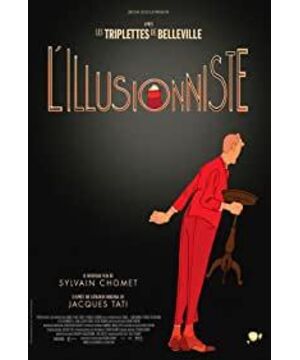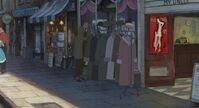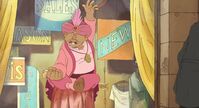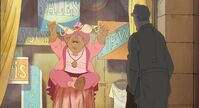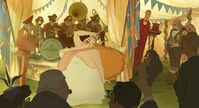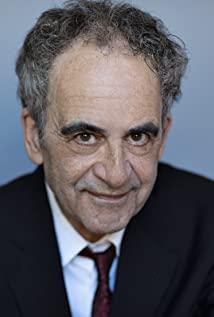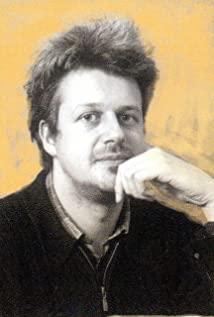Just like Gaudí's emphasis on the role of light in architecture, the pictures in the story are richly changed by light:
the shadows of clouds drifting over the plain,
the light coming in from the train window, the
neon day and night by the window
, the lights and night in the hotel,
we The atmosphere of watching the movie was also a little awkward. On a boring Sunday afternoon, the weather was still humid and hazy.
The journey of the magician is like a piece of watercolor painting, just painted, the water has not dried from the paper. It was raining, damp and cold in the film. Cooperate with the loneliness of the person leaning against the train window in the film, and walk through the foggy mountain together.
It was around the end of the 1950s, and performers were no longer warmly welcomed. Mr. Magic stood on the edge of the stage again and again, getting ready to go, waiting for the end of the rock band on the stage, taking advantage of the lively performance and making a few small money - but the band left There were only two spectators left.
We often see a kind of bridge, one person picks up another person like a pet, so the two stretched people depend on each other and live a good life.
Chaplin told stories like this, and I remember a good old homeless man who tap danced and lived like this with a dancing dog. Yesterday, we watched a "Lost & Found" together, and the little penguin and the little boy finally depended on each other.
An ignorant girl sneaked out and went to Edinburgh to follow the magician. She thought that the magician was a magician and could conjure all kinds of things unconditionally. I couldn't understand at first, why the magician didn't refuse, his life is already turbulent enough, and why should he have to bear a material girl when his life is getting worse, is it because of love? The result is not.
They stopped at a small hotel full of entertainers:
ventriloquist puppet masters, who ended up selling their puppets and begging in the streets
A swing actor with triplets, who ended up doing odd jobs all over the mall as a
gloomy funny clown who only knew that before committing suicide, Alice gave him a bowl of soup,
he stood in the bright window for a living and did magic to sell lingerie and perfume, and then He can't go on.
Even so, he still didn't count on giving Alice clothes and shoes in return, so Alice could go and have a love affair with the boy next door. Finally, I knew that this was not love but a father-daughter relationship. To be clear, it was The magician wants to satisfy his feelings for his daughter, and uses Alice as the object of emotional release.
"Father and Daughter" once pursued the father from the perspective of the daughter. It seems that no matter in the eyes of Chinese or Western culture, the daughter will always leave the nest. So at the end of the film, the magician continued to travel alone, leaving some money and a letter: "There is no magician in the world." Alice left in the rain with the boy he liked as an adult.
But he roughly abides by these values:
"Life is an embarrassing magic trick. It's not out of nothing, but whether it's good or bad, you should try your best to use tricks to please your loved ones."
View more about The Illusionist reviews


